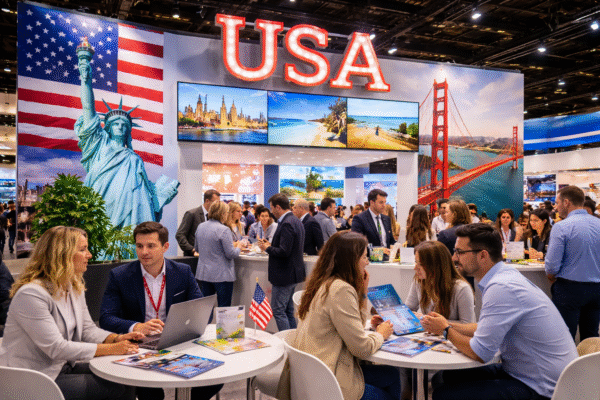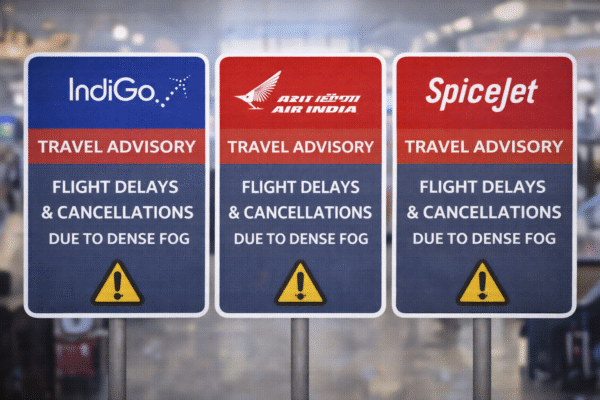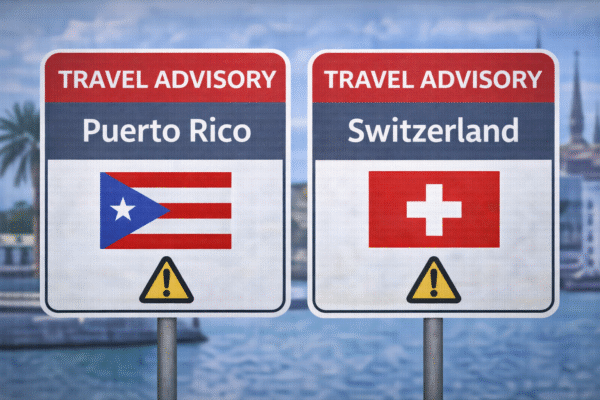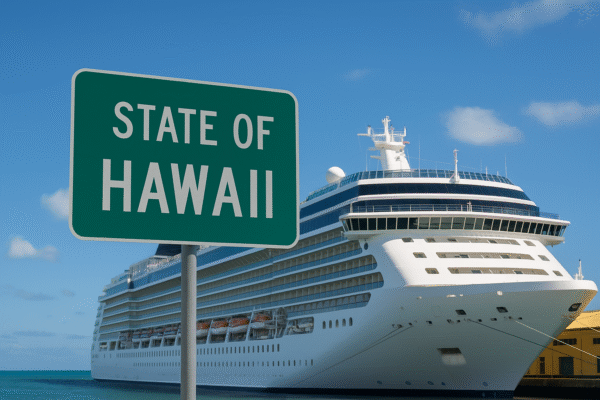CLIA Challenges Hawaii’s Green Tax in Federal Court
Honolulu, Hawaii – The Cruise Lines International Association (CLIA) has filed a federal lawsuit against the State of Hawaii, challenging the newly enacted “Green Tax” that will extend the state’s Transient Accommodations Tax (TAT) to cruise ship passengers. The legal action, filed in the U.S. District Court for the District of Hawaii, argues that the new tax is unconstitutional and could significantly damage Hawaii’s economy, which heavily depends on cruise tourism.
Understanding the Green Tax
Starting January 1, 2026, the Green Tax will apply an 11% state tax on the prorated portion of cruise fares for time spent in Hawaii ports. Counties will also have the authority to impose an additional 3% surcharge, bringing the total tax burden to approximately 14% per passenger.
State officials argue that the revenue, projected to reach about $100 million annually, will fund critical environmental and climate resilience projects across the islands. The tax extends Hawaii’s existing Transient Accommodations Tax—traditionally applied to hotels and vacation rentals—to include cruise ship passengers, making Hawaii the first U.S. state to impose such a fee on the cruise industry.
CLIA’s Legal Arguments
CLIA contends that the Green Tax violates several provisions of federal and constitutional law.
- Tonnage Clause Violation: The association argues that the tax is effectively a charge for vessels entering and docking in Hawaii, which is prohibited under the U.S. Constitution’s Tonnage Clause.
- Rivers and Harbors Appropriation Act of 1884: The lawsuit also claims that the tax unlawfully imposes tolls on vessels navigating U.S. waterways.
- First Amendment Conflict: Cruise lines are required to display the tax in advertisements and on board, a stipulation CLIA claims amounts to government-compelled speech, raising free speech concerns.
According to CLIA, the tax places an undue burden on passengers and operators, threatening the competitiveness of Hawaii as a cruise destination.
Economic Importance of Cruise Tourism
Cruise tourism is a vital part of Hawaii’s economy. In 2023 alone, the industry generated approximately $639 million in total economic impact, supported 3,000 local jobs, and contributed $215 million in wages to Hawaii residents. Passenger spending benefits a wide range of businesses, from local tour operators and restaurants to retail shops and transportation services.
By making cruise travel more expensive, CLIA warns the Green Tax could deter visitors and disrupt the steady flow of income many local communities rely on. Smaller ports and towns, in particular, could feel the brunt of reduced visitor numbers.
Concerns from Local Businesses
Local business owners have voiced growing concern over the potential economic ripple effects of the new tax. Many small businesses in port communities, including excursion providers, gift shops, and transportation operators, rely heavily on cruise passengers for revenue.
Industry representatives caution that if cruise lines reduce their Hawaiian itineraries due to increased costs, it could result in job losses, reduced wages, and a slowdown in the local economy. The tax, they argue, risks destabilizing a sector that plays a key role in supporting livelihoods across the islands.
A Call for Dialogue
Despite the legal dispute, CLIA has expressed its willingness to work collaboratively with Hawaii’s leadership to develop a more balanced policy. The association emphasized the importance of finding a framework that supports the state’s environmental goals while preserving the economic benefits of cruise tourism.
“The cruise industry has long been a partner in Hawaii’s tourism success,” CLIA said in a statement. “We are committed to solutions that ensure sustainable growth, protect local jobs, and maintain Hawaii’s status as a world-class destination.”
The State’s Perspective
Hawaii officials have defended the Green Tax, framing it as a critical step toward funding environmental protection and hazard mitigation programs. Governor Josh Green, who signed the measure earlier this year, highlighted the urgent need to address climate change and preserve natural resources as visitor numbers continue to rise.
Supporters of the law believe that revenue from the tax will help manage the ecological pressures associated with tourism, particularly in sensitive areas such as coral reefs, marine sanctuaries, and coastal parks.
The Future of Cruise Tourism in Hawaii
As the lawsuit moves through the courts, the future of Hawaii’s cruise tourism sector remains uncertain. If CLIA succeeds, the implementation of the Green Tax could be delayed or halted, prompting lawmakers to reconsider the structure of the tax. Conversely, if the law stands, Hawaii could set a precedent for other states considering similar measures to address environmental concerns tied to tourism.
For now, industry stakeholders, local communities, and travelers are closely watching the case. The outcome will shape not only the financial dynamics of Hawaii’s tourism economy but also broader discussions on balancing economic growth with environmental responsibility.
Balancing Economy and Environment
The controversy highlights a larger issue faced by popular destinations worldwide: how to fund sustainable tourism initiatives without driving visitors away. Hawaii’s Green Tax represents an ambitious attempt to address environmental challenges, but critics argue that the approach risks undermining the very industry that supports these efforts.
For Hawaii, striking the right balance will be key. A cooperative framework—built on open dialogue between state officials, environmental advocates, and the cruise industry—may be the best path forward to ensure that Hawaii remains both a thriving tourist destination and a steward of its unique natural heritage.
For more travel news like this, keep reading Global Travel Wire
















